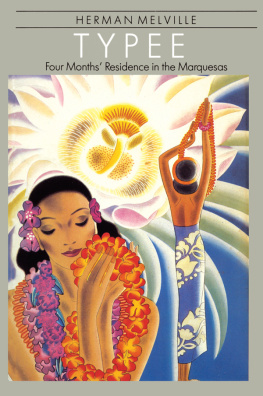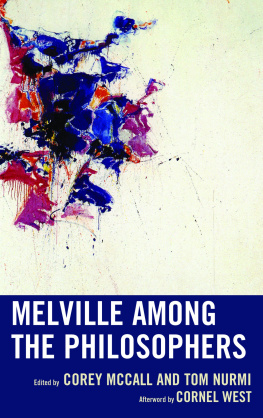A HISTORY OF
POLICE IN ENGLAND
BY
Captain W. L. MELVILLE LEE
M.A. Oxon.
" Qu'on examine la cause de tous les relchemens, on verra qu'elle vient de l'impunit des crimes et non pas de la modration des peines.""L'Esprit des Lois -Bk. VI.," cap. xxii.
METHUEN & CO.
36 ESSEX STREET W.C.
LONDON
1901
DEDICATED
BY PERMISSION
TO
The Right Hon. LORD ALVERSTONE, G.C.M.G.
LORD CHIEF JUSTICE OF ENGLAND
CONTENTS
| CHAP. | PAGE |
| I. | Anglo-Saxon and Norman Police |
| II. | Watch and Ward |
| III. | Justice and Constable |
| IV. | Forest Police and Police in the Fifteenth Century |
| V. | Commercial Police and Police under the Tudors |
| VI. | Ecclesiastical Police and Police under James I. |
| VII. | Military Police and Police under Charles II. |
| VIII. | Bow Street Police and Magisterial Reform |
| IX. | Parochial Police of the Eighteenth Century |
| X. | Police at the Dawn of the Nineteenth Century |
| XI. | Pioneer Reformers |
| XII. | " The New Police " |
| XIII. | " Public Opposition to the "New Police" " |
| XIV. | Police Reform in Boroughs |
| XV. | Police Reform in Counties |
| XVI. | Co-operative Police and the Suppression of Riots |
| XVII. | Police Statistics and Penology |
| XVIII. | Detective Police and the Right of Public Meeting |
| XIX. | Conclusion |
PREFACE
A title of convenient length, but one which shall exactly fit the subject-matter in hand, is a desideratum that seldom lies within an author's reach. The title selected for this book is open to the objection that, though consisting of as many as six words, it is, however, not quite explicit. The sense in which the word "police" is used is explained in the Introductory Chapter, but it here remains to be said that "England" must be taken to include the Principality of Wales, and, incidentally, that by the employment of the indefinite article an indication of the non-pretentious character of the work is intended.
References have been but sparingly given throughout, and, in answer to those critics who may possibly object that the array of authorities quoted is too meagre, the author can only plead in extenuation that opportunities for taking full advantage of good reference libraries are often denied to dwellers in camps and barracks. In general the plan adopted, or at least aimed at, has been to refer to all Acts of Parliament mentioned in the text, to acknowledge the source of verbatim quotations, and to give the authority relied on in support of any statement that may reasonably be held to verge on contentious, or even on debatable, ground.
In amplification of the Criminal Statistics tabulated on page 337, and in confirmation of the deductions there drawn, an encouraging fact may be mentioned. Although the Census Returns for 1901 shew that the population of England and Wales now exceeds thirty-two and a half millions, the Judicial Statistics recently published by the Home Office state that the number of persons brought to trial before the superior criminal courts during 1899 (the last year for which such statistics are available) was under eleven thousand, which is the lowest figure yet recorded.
Before concluding these prefatory remarks I must express my thanks to Lord Alverstone, who has been kind enough to find time to look through my proof-sheets and to allow me to dedicate the book to him; to H. W. Carless Davis, Esq., of All Souls' College, Oxford, who has so generously brought an expert knowledge of Anglo-Saxon history to bear upon my earlier chapters, and to those Chief Constables and other officials who have helped me with information and advice. In particular must I acknowledge my indebtedness to D. W. Rannie, Esq., of Oriel College, Oxford, for it is not too much to say that without his invaluable assistance and encouragement the following pages would never have appeared.
Inner Temple Library
August 1901
INTRODUCTORY CHAPTER
Introducing himself to his readers at the close of the eighteenth century, Dr Colquhoun wrote: "Police in this country may be considered as a new science." A full generation later, or to be more precise, in the year of Queen Victoria's accession, one of the leading magazines of the day found occasion to remark as follows: "The art of preventing offences is unbeaten groundhas hardly had a scientific teacher. On laws and general legislation, on the theory of crimes and punishments, on prison discipline, on the execution of offenders, and all the ulterior proceedings of delinquency, we have treatises without number; but on the institutions of police we have not a single work, except perhaps the matter-of-fact publication of the late Dr Colquhoun." Since this paragraph was first printed a period of unparalleled literary activity has been witnessed, a period so prolific of book-making that the thirty-nine miles of shelves with which the main building of the British Museum is furnished have not sufficed to contain the ever-increasing accumulation of volumes that must be housed. It is true that in modern melodrama the detective has been found an almost indispensable property, nor has he been altogether neglected by the modern novelist; there are scores of blue-books containing evidence collected by Parliamentary Committees on the subject of police, and there is no lack of excellent manuals wherein the constable's duty is defined and explained; but at the dawn of the twentieth century, and in spite of the over-crowded state of our public libraries, we are still waiting for the advent of the teacher who will investigate and expound for us the police sciences.
In the following pages some attempt will be made to approach this strangely neglected subject, not indeed by the avenue that a scientist would use, but simply to trace in outline the story of English police, keeping in view the underlying principles that have directed, as well as those political and other considerations that have controlled, its evolution. Previous neglect is not however the only reason why the institution of police calls for historical treatment. On three other grounds in particular can the subject claim recognition; it deserves notice on account of its interest, on account of its antiquity, and on account of its importance.
The history of any national institution should not be totally devoid of interest; and amongst all our institutions it would be hard to find one so eminently characteristic of our race, both in its origin and in its development, or one so little modified by foreign influences, as the combination of arrangements for maintaining the peace, which we call "police." Police questions touch each one of us so intimately in our daily life, in our personal liberty and in our self-respect; the character of a nation is so profoundly influenced by the nature of the control to which it is subjected, that a due appreciation of the scope of police functions, a proper knowledge of the origin and extent of the powers and duties delegated to our constabulary forces, must possess a more than academic interest. Continental gendarmeries, framed for the most part on the Latin model, have been imposedoften ready-madeon various nationalities, without heed to their racial peculiarities, and careless of local tradition or circumstance. Our English police system, on the other hand, rests on foundations designed with the full approval of the people, we know not how many hundreds of years before the Norman conquest, and has been slowly moulded by the careful hand of experience, developing as a rule along the line of least resistance, now in advance of the general intelligence of the country, now lagging far behind, but always in the long run adjusting itself to the popular temper, always consistent with local self-government, and even at its worst, always English.










